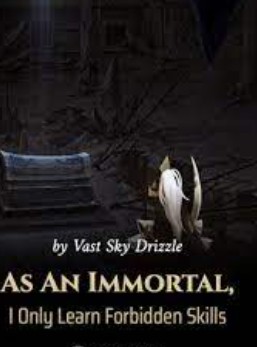Chapter 840 Wizard
Compared with Manstein's nervousness, Shulka and others who are at the 51st Army headquarters are a little ashamed of the organization and command of the airborne brigade. I didn't hold out much hope for the battle.
"How's the situation?" Zolotarev asked impatiently.
"It's not clear yet!" replied Veniamenko.
"Who is in charge of fighting in the city of Milove?" Trufanov asked.
"I don't know, Comrade Trufanov!"
"What about Height 3?"
"I also don't know..."
"Why don't you know anything?" Zolotarev looked at his watch in confusion: "It's been fifteen minutes since we landed. Besides, shouldn't these things have been arranged long ago?"
Venyaminko replied helplessly: "Believe me, Comrade Zolotarev, I also want to arrange it long ago, and it is actually very easy to arrange these in advance. We only need to assign the tasks one by one. Already!"
"Then why didn't you do it, Comrade Venyaminko?" Zolotarev asked suspiciously.
"Comrade Veniamenko can't do that!" Shulka said: "And it's pointless!"
Venyaminko nodded and explained: "This is an airborne operation, Comrade Zolotarev! And we have three offensive targets, and none of us are sure where we can be airborne. What about the mission? If the 1st Airborne Regiment is assigned to attack Height No. 3, and most of them parachute to the village of Butur...Should they rush to Height No. 3 to fight?"
Hearing this, Zolotarev and Trufanov were speechless.
This is another feature of airborne operations, to be precise, the characteristics of airborne operations during World War II: uncertainty.
The airborne point is uncertain, the mission is uncertain, and even the strength, equipment and organization are uncertain.
For example, it was originally planned to parachute a regiment to Height No. 3, but a sudden gust of wind blew... Maybe most of the people were blown to the city of Milloway.
So, the first, second, and third airborne regiments are actually meaningless, and of course it doesn't make sense who is in charge and who is in charge.
A considerable part of airborne combat in this era is based on luck.
For example, now, let’s airdrop the more than 3,000 paratroopers to that area first, and then let them form freely and assign superiors and subordinates by military rank, and then launch an attack based on the principle of proximity.
"So..." Shulka asked a question: "How can they know where they are airborne, or which target should they attack?"
If this problem is modern, it is a trivial matter. Once the satellite positioning is turned on, you can know your position. Of course, you can also know the position and even the distance of several targets, and then it is clear at a glance which target to attack.
But in this period, there is no such thing as satellite positioning at all. When you go airborne, your eyes will be smeared, especially at night, which requires excellent ability to read maps and find points... This may be feasible for modern well-trained airborne troops. But Shulka expressed serious doubts about the Soviet paratroopers who had only been trained for parachuting for a few months and were still used as infantry.
"We have also considered this!" Veniaminco replied: "So we temporarily recruited many soldiers from Milloway, who are familiar with the terrain, and each company added three... So, the first thing after the troops were airborne was Find them!"
"Temporary recruitment?" Shulka was a little puzzled.
Veniamenko's approach does work.
On the one hand, there are quite a few soldiers from Milloway in the army, and many of them can serve as guides at the command of an order. When they parachute to that area, they can judge their approximate location from the surrounding terrain, and then use This further action.
On the other hand, each company is supplemented with three people, that is, almost one in each row. Such airborne troops are dropped in batches, and these "guides" who are familiar with the terrain will also walk around the soldiers more evenly. The officers and soldiers of the airborne troops can easily to find them.
Shulka's doubts are...
"If it is a temporary call, there is no guarantee that they will parachute, is there?"
"Of course!" Veniamenco replied, then looked at the bewildered crowd, and asked, "They really don't know how to parachute. Is there any problem?"
Shulka and Trufanov looked at each other.
This is not only a problem, but a big problem.
Although these "guides" do not need to prepare and organize their own parachutes, although they will automatically open their parachutes when they parachute...but parachuting is not just as simple as a parachute, especially at the moment of landing, if you don't know how to simply control the parachute to avoid If you don't know how to move when you are in a dangerous area, you may fall and get injured, or you may be strangled on a tree or your neck may be broken.
However, these seem to be nothing to the Soviet army.
Because even with these casualties, quite a few of those "guides" can still land smoothly... What's more, it doesn't matter if those "guides" fall and get injured. They were not expected to participate in the battle. It can be in any part.
In other words, these "casualties" may all be considered by Lieutenant General Veniaminco.
It can be seen that Lieutenant General Veniamenco's thinking is quite careful, but it seems a little ruthless... But this seems to be the necessary quality for a general.
While several people were discussing, the communications soldier reported excitedly: "There is news, the 1st Airborne Regiment has landed near Height No. 3, and the positions of the 2nd Airborne Regiment and the 3rd Airborne Regiment are in the east and south of Milloway respectively. ..."
Several people couldn't help but be surprised when they heard the words. Two airborne regiments were near the urban area of Milove. Does this mean that the most difficult village of Butur has no troops? !
But that's not the case.
Because the No. 1 Airborne Regiment mentioned here is actually just a command team carrying a radio... After they land, they first determine their position, and then use the radio to report to the command headquarters.
However, this at least proves that the direction of Butur is in a state of no command.
"It's not unmanned!" Veniaminco said: "Because we told everyone in advance that this situation is very likely to happen after they are airborne. The next battle needs to be organized spontaneously. fighting!"
"But they can't contact us, that is, we can't coordinate with them!" Zolotarev complained: "Why don't you let them bring more radio stations!"
"I have already done that, Comrade Zolotarev!" said Veniaminko, "but we have only twenty-one stations, twelve of which have been assigned to the airborne troops! But we cannot guarantee that they will land on the ground It can still be used normally!"
(end of this chapter)
RECENTLY UPDATES
3.45







